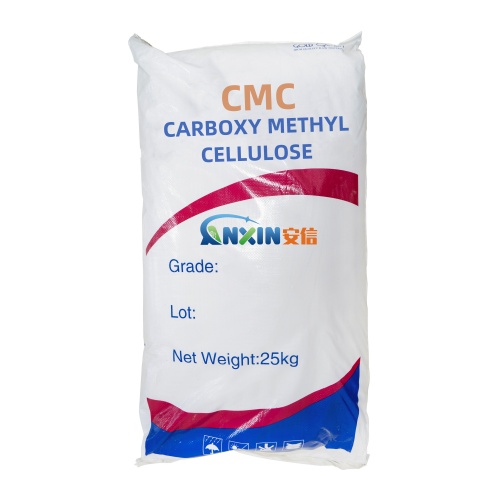Application of Sodium Carboxymethyl Cellulose (CMC) in Food Industry
Sodium Carboxymethyl Cellulose (CMC) is a versatile and widely used additive in the food industry due to its unique properties and functionalities. Derived from cellulose, a natural polymer found in plants, CMC undergoes chemical modification to enhance its solubility and thickening properties, making it an invaluable ingredient in various food products.
1. Thickening and Stabilizing Agent:
CMC is prized for its ability to thicken and stabilize food products, thereby enhancing their texture and consistency. It is commonly used in sauces, dressings, and dairy products to impart a smooth and creamy texture while preventing phase separation.
In ice creams and frozen desserts, CMC helps inhibit crystallization and maintains a desirable mouthfeel by controlling ice crystal formation, resulting in a smoother and creamier product.
2. Emulsifying Agent:
Due to its emulsifying properties, CMC facilitates the formation and stabilization of oil-in-water emulsions in various food formulations. It is frequently employed in salad dressings, mayonnaise, and margarine to ensure uniform dispersion of oil droplets and prevent separation.
In processed meats such as sausages and burgers, CMC aids in binding fat and water components, improving product texture and juiciness while reducing cooking losses.
3. Water Retention and Moisture Control:
CMC functions as a water-retaining agent, enhancing the moisture retention capacity of food products and prolonging their shelf life. It is commonly used in bakery goods, such as bread and cakes, to maintain softness and freshness throughout storage.
In gluten-free products, CMC serves as a vital ingredient in improving the texture and structure, compensating for the absence of gluten by providing binding and moisture retention properties.
4. Film-Forming and Coating Agent:
CMC’s film-forming properties make it suitable for applications where a protective coating is required, such as on confectionery items like candies and chocolates. It forms a thin, transparent film that helps prevent moisture loss and maintains product integrity.
CMC-coated fruits and vegetables exhibit extended shelf life by reducing water loss and microbial spoilage, thereby minimizing food waste and improving overall product quality.
5. Dietary Fiber Enrichment:
As a soluble dietary fiber, CMC contributes to the nutritional profile of food products, promoting digestive health and satiety. It is often incorporated into low-fat and low-calorie foods to enhance their fiber content without compromising taste or texture.
CMC’s ability to form viscous solutions in the digestive tract offers potential health benefits, including improved bowel regularity and reduced cholesterol absorption, making it a valuable ingredient in functional foods and dietary supplements.
6. Clarifying and Filtration Aid:
In beverage production, particularly in the clarification of fruit juices and wines, CMC acts as a filtration aid by assisting in the removal of suspended particles and cloudiness. It improves product clarity and stability, enhancing visual appeal and consumer acceptance.
CMC-based filtration systems are also used in beer brewing processes to achieve consistent product quality by efficiently removing yeast, proteins, and other undesirable particles.
7. Control of Crystal Growth:
In the production of jellies, jams, and fruit preserves, CMC serves as a gelling agent and crystal growth inhibitor, ensuring uniform texture and preventing crystallization. It promotes gel formation and imparts a smooth mouthfeel, enhancing the sensory attributes of the final product.
CMC’s ability to control crystal growth is also valuable in confectionery applications, where it prevents sugar crystallization and maintains the desired texture in candies and chewy sweets.
Sodium Carboxymethyl Cellulose (CMC) plays a crucial role in the food industry, offering a wide range of functionalities that improve the quality, stability, and nutritional value of food products. From thickening and stabilizing to emulsifying and moisture retention, CMC’s versatility makes it indispensable in various food formulations. Its contributions to texture enhancement, shelf life extension, and dietary fiber enrichment underscore its significance as a key ingredient in modern food processing. As consumer demands for convenience, quality, and health-conscious options continue to evolve, the utilization of CMC is likely to remain prevalent in the development of innovative food products that meet the ever-changing needs of today’s discerning consumers.
Post time: Apr-16-2024
